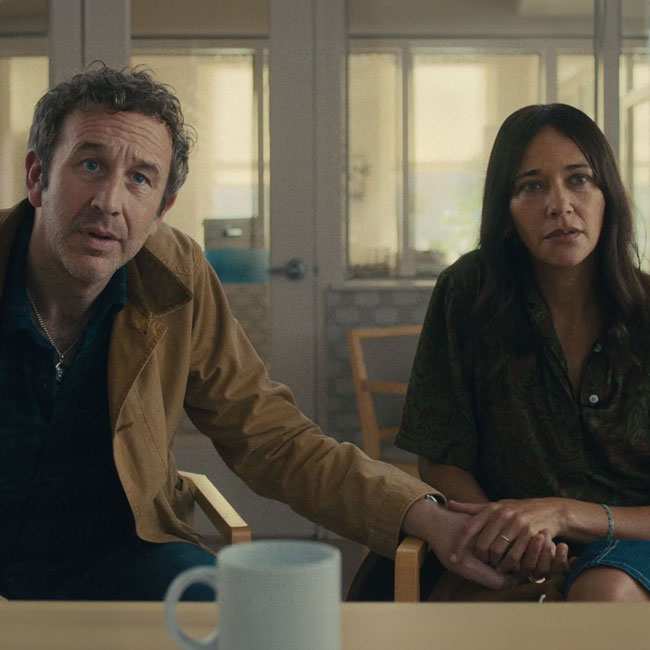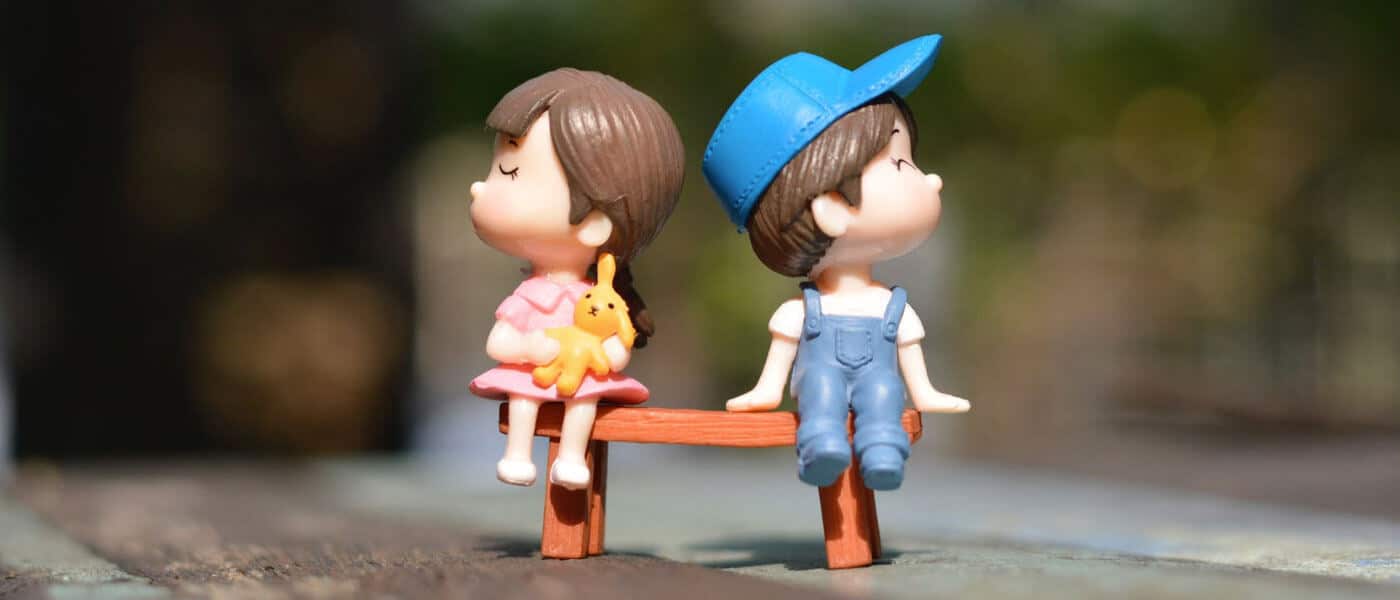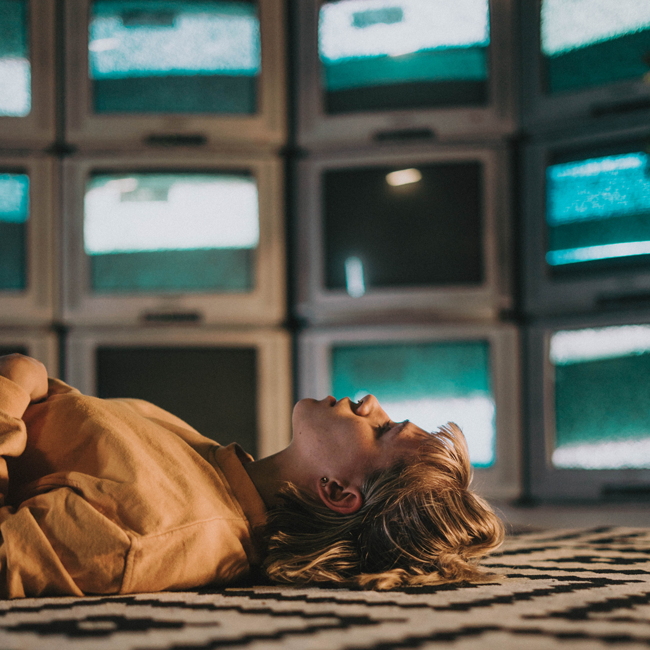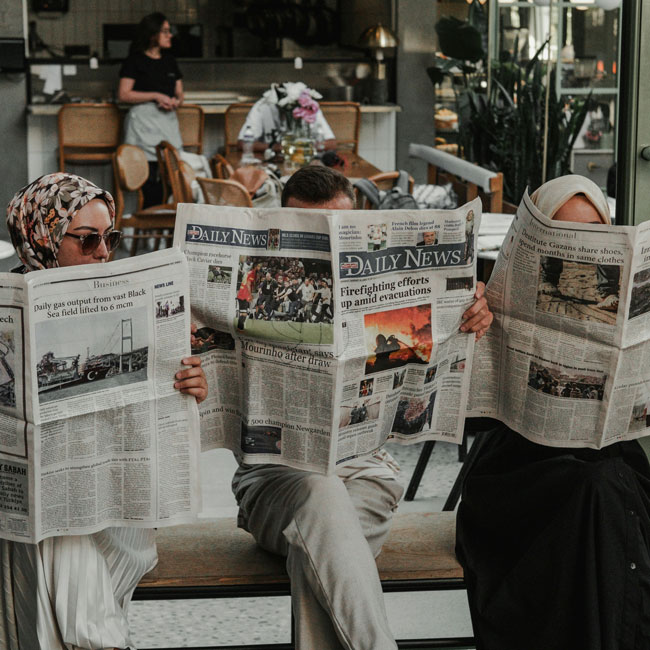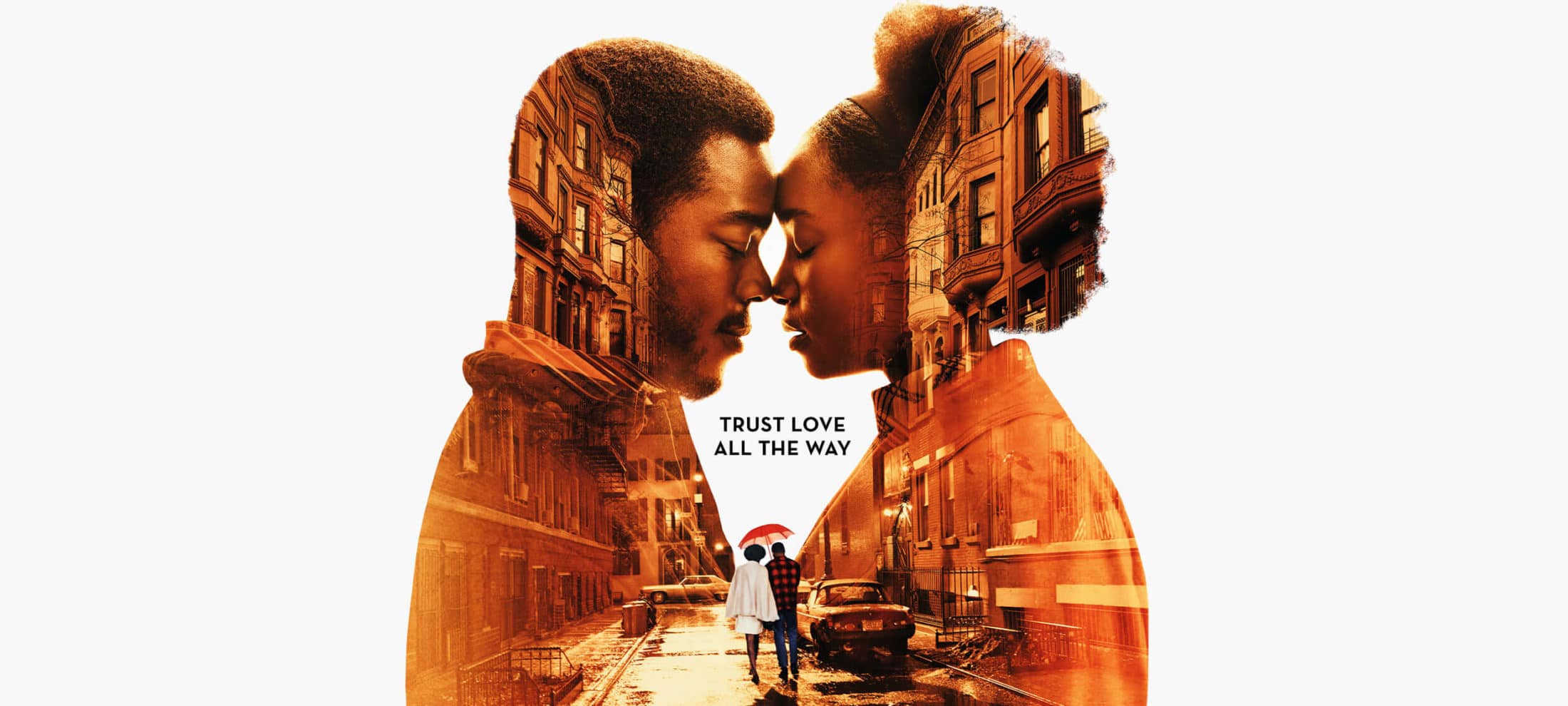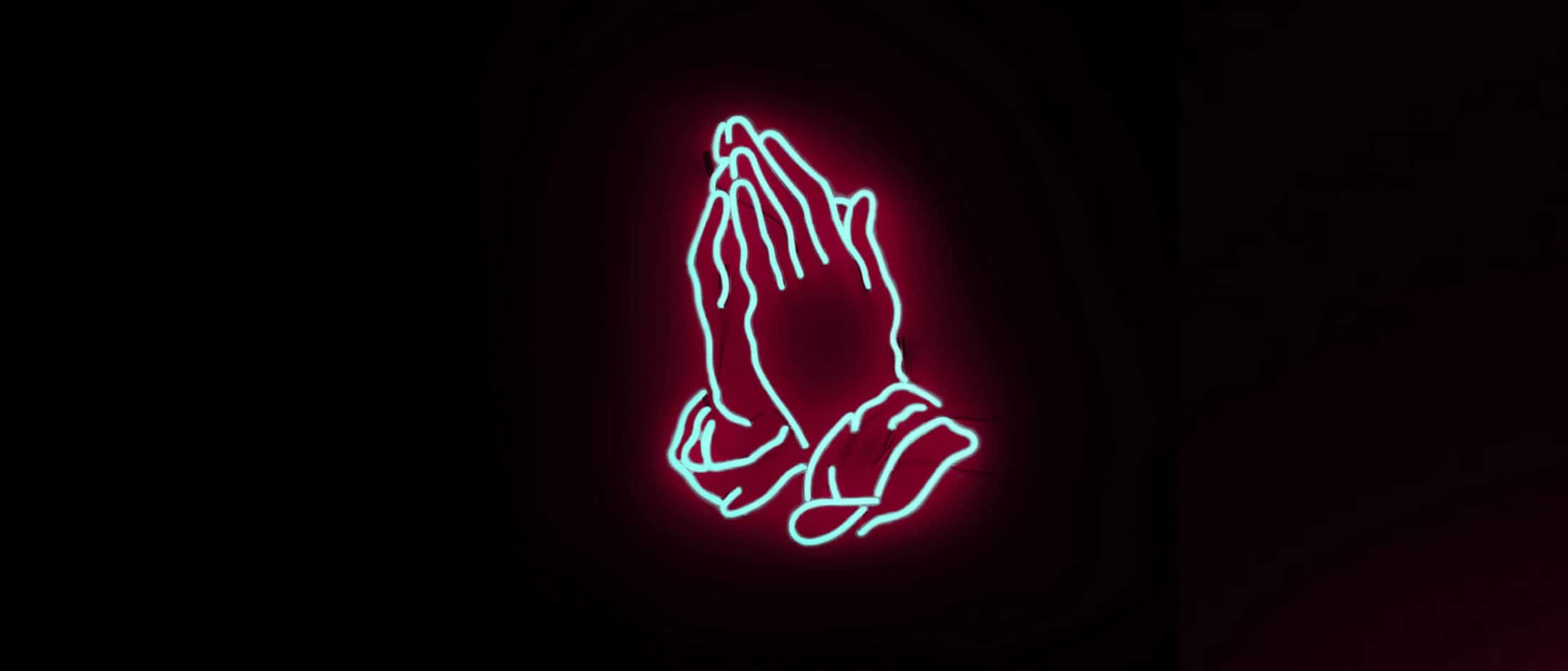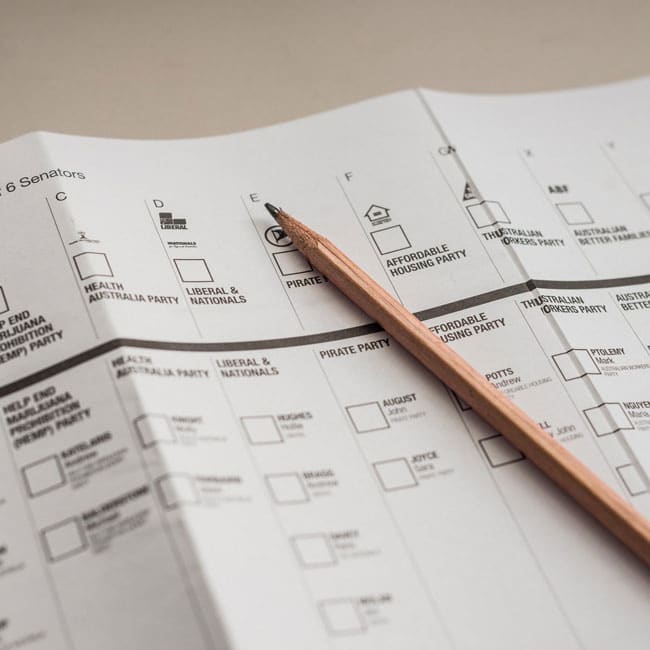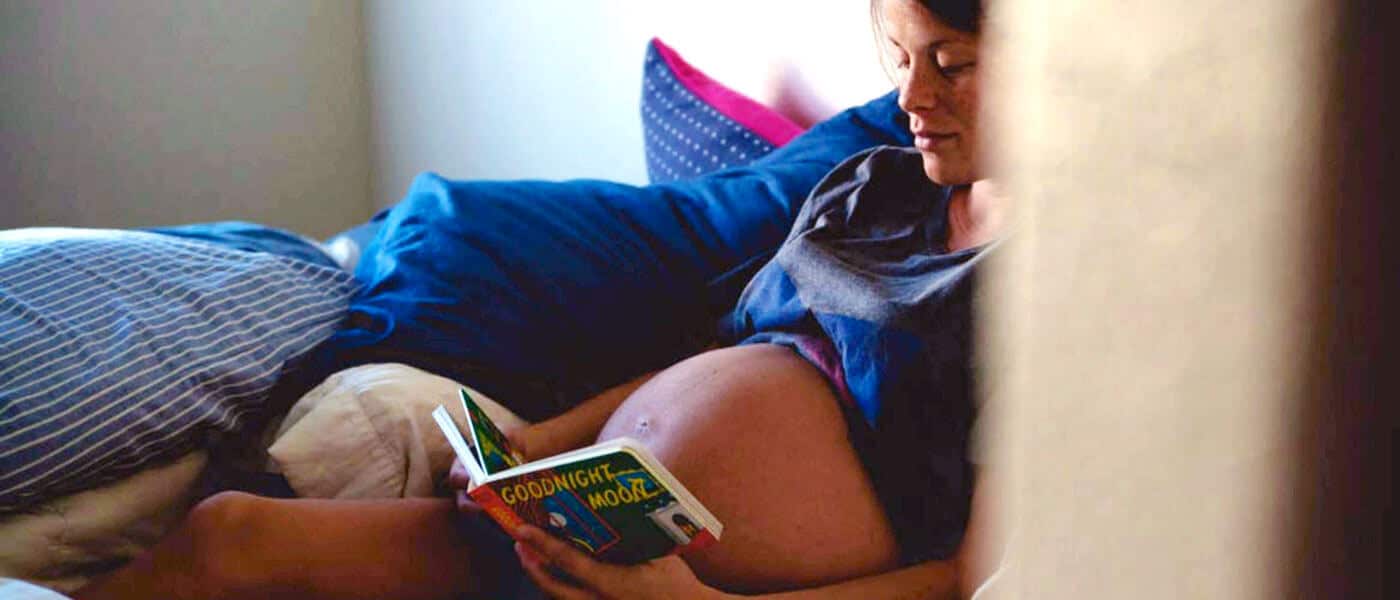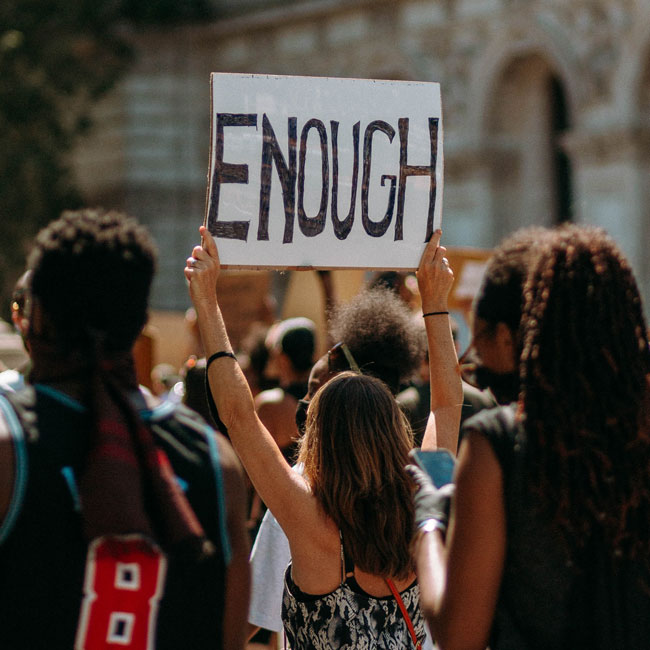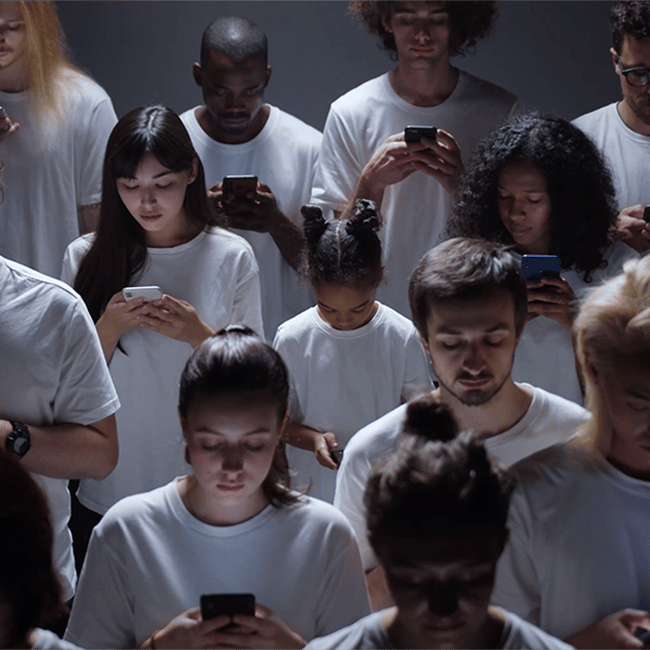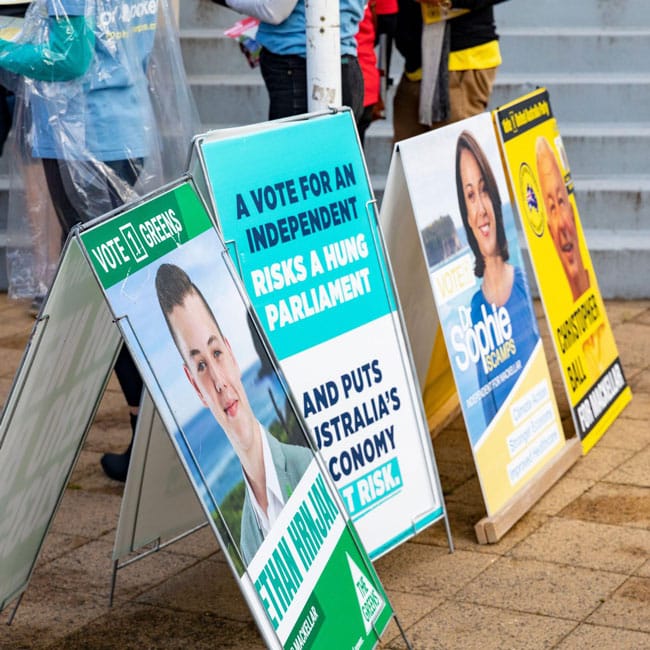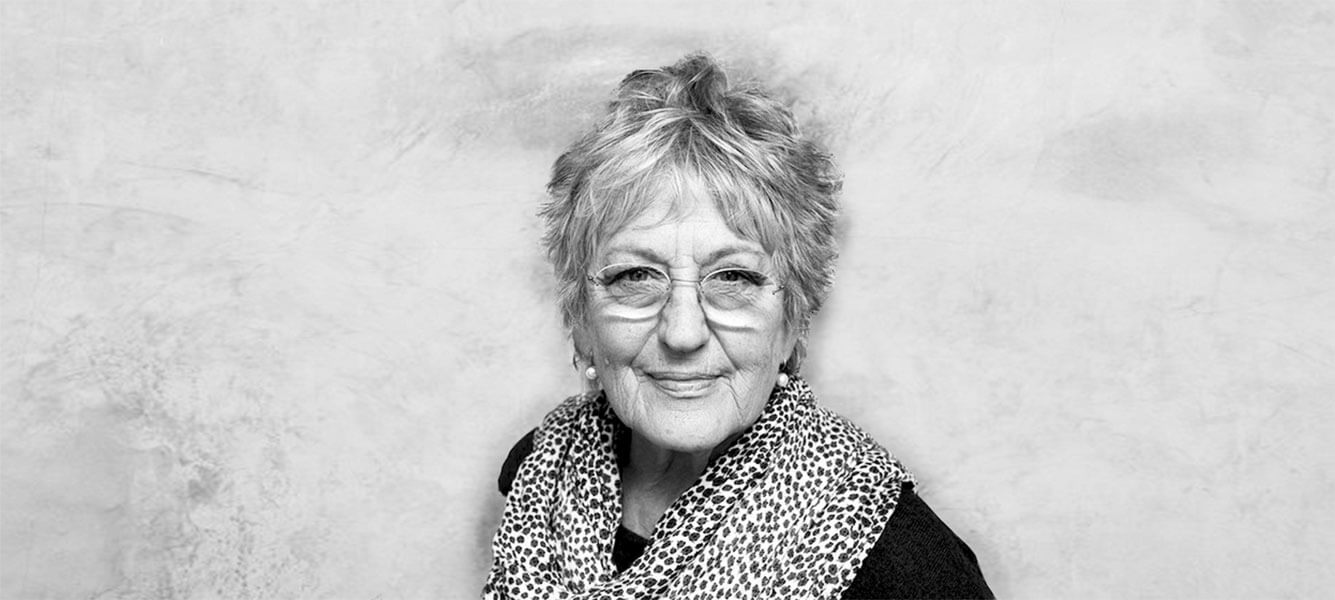Do diversity initiatives undermine merit?

Do diversity initiatives undermine merit?
Opinion + AnalysisBusiness + LeadershipPolitics + Human Rights
BY Paula McDonald 7 MAY 2025
US President Donald Trump declared earlier this year he would forge a “colour blind and merit-based society”.
His executive order was part of a broader policy directing the US military, federal agencies and other public institutions to abandon diversity, equity and inclusion (DEI) initiatives.
Framing this as restoring fairness, neutrality and strength to American institutions, Trump argued DEI programs “discourage merit and leadership” and amounted to “race-based and sex-based discrimination”.
In Australia too, debates over gender quotas and “the war on woke” have repeatedly invoked meritocracy as a rallying cry against affirmative action.
The narrative of rewards going to the most qualified people is compelling. Yet decades of research show this is flawed. Far from being the great equaliser, an uncritical reliance on “merit” can perpetuate bias and inequality.
The myths of meritocracy
The merit rhetoric invokes the ideal of a neutral, objective system rewarding talent and effort, regardless of identity.
In theory, merit-based evaluations such as exams, performance reviews, employee recruitment processes and competitive bids, should be impartial.
In practice however, there are several myths associated with the notion of merit.
1. Merit is purely objective or unbiased
In the employment context for example, studies show that even so-called objective and standardised cognitive or aptitude tests can systematically favour men due to the type of questions asked.
Decision-makers may unknowingly redefine merit to fit whoever already belongs to a favoured group. A study of elite law firms, for example, found male applicants were rated as more qualified than identical resumes from women.
This is known as “plasticity of merit”, meaning the criteria of excellence can bend to preference, all while appearing objective.
Supposedly merit-based judgments can reflect unconscious bias, or comfort with candidates who fit a traditional mould. Over time, preference may be given to a particular type of candidate irrespective of their actual contribution. Privilege and prejudice can be baked into merit-based evaluations.
2. Merit can be separated from social and historical context
Meritocracy or the so-called meritocratic promise assumes a level playing field, where everyone competes under the same conditions.
In reality however, past inequalities shape present opportunities. What counts as merit is dynamic and socially shaped, not an eternal universal standard.
For example, during the second world war there was a shortage of male workers. Qualities women brought to jobs previously held by men such as capacity for teamwork were suddenly deemed meritorious. But these same qualities were downgraded when the men returned.
Merit is often defined in masculine terms. For example, physicality or hyper-competitive traits have long been seen as prerequisites for military service and policing.
This alignment of masculine norms with standards of merit has been termed “benchmark man”.
Science careers too were built in an era when women were largely excluded. They were predicated on long-hours work and total availability – requirements that clash with caregiving responsibilities. The result is women in STEM careers leave or are pushed out.
3. Outcomes are the result of personal choice or deficiencies, not structural barriers
Meritocracy carries a moral narrative: those at the top earned their place while those left behind didn’t measure up or chose not to compete.
Research shows, for example, that when women don’t advance, it’s explained as lifestyle choices, or they lack ambition, or have opted out to prioritise caregiving.
This narrative wilfully overlooks the structural constraints impacting choices. When a woman “chooses” a lower-paying, flexible job, it may be less about preference than inadequate social supports.
By accepting unequal outcomes as the natural result of individual choices, institutions can conveniently obscure disadvantage and discrimination and erase responsibility to correct inequities.
How the merit mandate undermines equality
Trump’s vision is to remove equity initiatives and programs that monitor or encourage fair hiring and promotion, cease training that alerts employees to hidden biases, and fire or reassign DEI staff.
This is conceptually flawed and will actually entrench the very biases and barriers that have kept institutions unequal.
In the military, for example – an area highlighted by Trump – leaders have recognised they need to foster more inclusive cultures.
For years, defence forces have grappled with sexual harassment, recruitment shortfalls and retention of skilled personnel. In Australia, the Australian Defence Force undertook major reviews to identify violent and sexist subcultures, understanding a more inclusive force is a more effective force.
Yet Trump’s order bars the Pentagon from even acknowledging historical sexism in the ranks.
Favouring the in-group
Removing equity measures under a banner of neutrality means hiring and promotion will increasingly rely on informal networks and subjective judgements. These can tilt in favour of the in-group – usually white, male and affluent.
DEI initiatives can increase representation of women, or people from diverse racial or cultural backgrounds, in an organisation or occupational group.
However, without challenging the norms of merit, or without broadening the definitions of talent and leadership, people in those groups may continue to feel like outsiders.
Australian experts and business leaders increasingly acknowledge objective merit is mythical.
Redefining merit
Fair rewards for effort can improve performance. However, we need to stop pitting merit against diversity. True fairness requires acknowledgement structural inequality exists and bias affects evaluations.
Organisations need to re-imagine merit in ways that work with inclusion, rather than against it. This includes refining hiring and promotion criteria to focus on competencies that are measurable and relevant.
This article was originally published in The Conversation.

BY Paula McDonald
Paula McDonald is Professor of work and organisation and Director of the Work/Industry Futures Research Program in the QUT Business School. Prior to an academic career, Paula held clinical and research roles in health sector settings including child and adolescent psychiatry, medical education, primary care and public health. She is a registered psychologist with the Australian Health Practitioner Regulation Agency.
Ethics in your inbox.
Get the latest inspiration, intelligence, events & more.
By signing up you agree to our privacy policy
You might be interested in…
Explainer
Politics + Human Rights, Relationships
Ethics Explainer: The Harm Principle
Opinion + Analysis
Business + Leadership
Perils of an unforgiving workplace
Opinion + Analysis
Business + Leadership
Why you should care about where you keep your money
Opinion + Analysis
Business + Leadership
Why do good people do bad things?
We are turning into subscription slaves
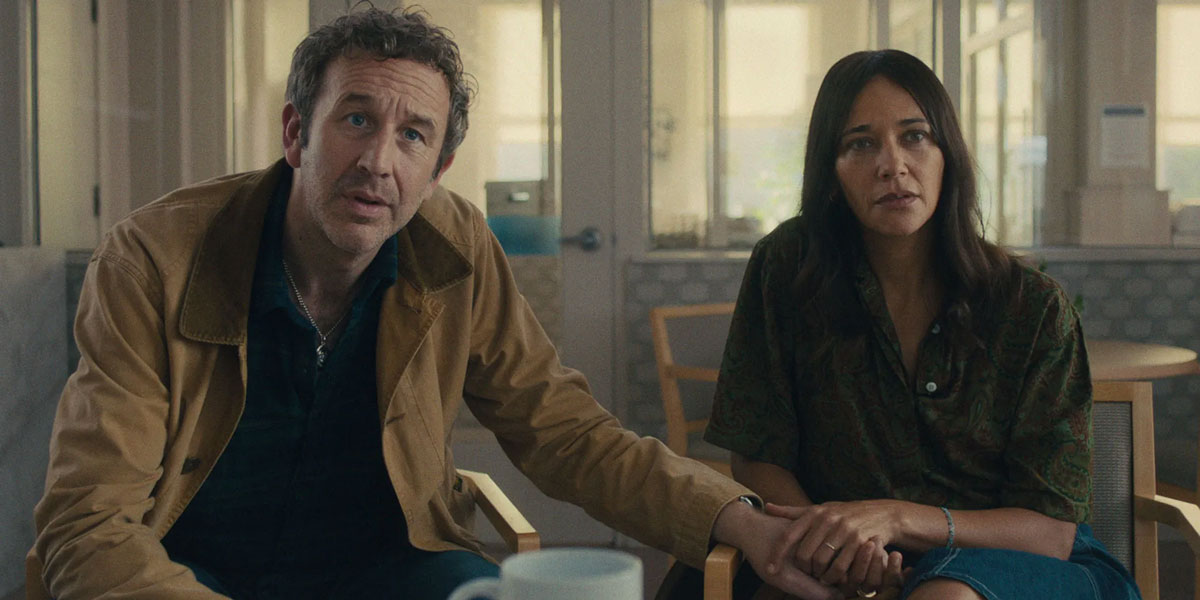
We are turning into subscription slaves
Opinion + AnalysisScience + Technology
BY Dr. Gwilym David Blunt 30 APR 2025
I want you to imagine that at some point in the not-too-distant future you are losing your eyesight. Although blindness will result, it is not inevitable. You can have your eyes replaced with new cybernetic ones.
Would you buy these eyes?
Most readers would probably say yes, provided they are affordable, but simply ‘buying’ something is rather old fashioned in the not-too-distant future.
The company that makes them offers them as a subscription service with a rather long document of terms and conditions. These T&Cs mean that they know where you are, what you watch on television, what pages you visit on the internet, and what holds your gaze a little bit longer while you are out in the world. All this data helps them to better understand you as a consumer and they will obviously sell it on to interested parties for a tidy profit.
There are also ‘ads’. Third parties can pay to have their products appear brighter and more appealing, a pop-up might appear showing a five-star review from a famous ‘eye-fluencer’ whose content you watch, while other brands appear less vibrant and may even blur if you don’t concentrate on them.
At this point I hope most of you are rightfully alarmed at this, but would you still accept? The alternative, after all, is blindness. The thought experiment leaves us with a choice, endure a disability that will make functioning in society more challenging or retain one’s sight but at the cost of having our perception of reality manipulated.
This seems dystopian, but we are already being forced to make this choice. Think about all the data you feed into the algorithm through your smartphone, streaming services and social media, and how that algorithm comes back to you recommending products you may like, or news stories and articles that interest you or align with your values. You, of course, have the choice not to use smart phones, social media, or the internet, but as this technology becomes increasingly necessary to participate in society the price of opting out becomes unreasonable.
The proliferation of subscription services is just one way our social and economic lives are being mediated by big tech. This change is so profound that some people, like Yannis Varoufakis, call it ‘techno-feudalism’. In his most recent book Techno Feudalism, he claims that it has replaced capitalism with a system based on the extraction of rents for the use of a resource rather than profits from innovation.
Anyone concerned with the importance of individual liberty and human autonomy ought to be alarmed, because we are turning into subscription slaves.
Liberty is one of those concepts that philosophers love to debate, but for me it is the absence of arbitrary interference. This is an idea of liberty that underpins the republican tradition of political philosophy; it is based on the contrast between a free citizen and a slave. The latter is unfree because they are subjected to the arbitrary whims of their owner; even if this power is never used the slave will know that all their choices depend upon the permission of another person. A citizen of a free republic in contrast may experience interference from the law, but this interference is controlled by the rule of law and mechanisms of accountability. They are not vulnerable to the whims of the powerful.
Subscription services, and techno-feudalism by extension, undermine our liberty in ways seen in the above thought experiment. They replace ownership of a good with mere permission for use. This might seem trivial when it comes to the provision of media, as with Apple Music or Netflix. The loss of a certain album or television show from a library is an inconvenience, but what happens when more essential services or goods can be withdrawn? Or when the terms and conditions can be unilaterally revised? Consider the problems American farmers had with John Deere. The company forced farmers to take their tractors to authorised mechanics by employing software locks, essentially turning farmers from owners to renters. This has been challenged in the courts and the company has retreated for now, but the trajectory is alarming.
More insidious though is how they affect our choice. The ‘data rent’ we pay to use subscription services and other platforms, which is effectively unpaid labour, is fed into the algorithm. Our digital personas are commodified, sold, and repackaged back to us. This is not a neutral process. Social media has helped the proliferation of conspiracy theories or unhealthy models of beauty or unrealistic ‘influencer’ lifestyles. This is the use of arbitrary power to shape our preferences and our shared social world into compliance with the bottom lines of major tech companies.
But aren’t people happy? To this we might say a good slave is one who doesn’t mind slavery while the best slave is the one who doesn’t even realise they are in chains.
These forces seem unassailable, but so did feudalism at the dawn of the early modern era. We need to look to history. Techno-feudalism, I hope, can be tamed by a digital republicanism. One that accepts the reality of power but makes it non-arbitrary and ultimately controlled by the people it effects. The first step here is the reclamation of personal data and control over its use. Just as citizens in the Renaissance republics denied the great feudal lords’ control over their persons, we must deny the great techno-feudal lords’ control over our digital persons.
This article was originally published by The Festival of Dangerous Ideas in 2023.

BY Dr. Gwilym David Blunt
Dr. Gwilym David Blunt is a Fellow of the Ethics Centre, Lecturer in International Relations at the University of Sydney, and Senior Research Fellow of the Centre for International Policy Studies. He has held appointments at the University of Cambridge and City, University of London. His research focuses on theories of justice, global inequality, and ethics in a non-ideal world.
Ethics in your inbox.
Get the latest inspiration, intelligence, events & more.
By signing up you agree to our privacy policy
You might be interested in…
Opinion + Analysis
Health + Wellbeing, Relationships, Science + Technology
Philosophically thinking through COVID-19
Opinion + Analysis
Politics + Human Rights, Relationships, Science + Technology
Parent planning – we shouldn’t be allowed to choose our children’s sex
Opinion + Analysis
Science + Technology
The rise of Artificial Intelligence and its impact on our future
Opinion + Analysis
Relationships, Science + Technology
We are being saturated by knowledge. How much is too much?
Ethics Explainer: Moral Courage

Ethics Explainer: Moral Courage
ExplainerSociety + CulturePolitics + Human Rights
BY The Ethics Centre 29 APR 2025
Martin Luther King Jr, Rosa Parks, Frederick Douglass, Susan B. Anthony, Greta Thunberg, Vincent Lingiari, Malala Yousafzai.
For most, these names, and many more, evoke a sense of inspiration. They represent decades and centuries of steadfast moral conviction in the face of overwhelming national and global pressure.
Rosa Parks, risking the limited freedom she was afforded in 1955 America, refused to acquiesce to the transit segregation of the time and sparked an unprecedented boycott led by Martin Luther King Jr.
Frederick Douglass, risking his uncommon position of freedom and power as a Black man in pre-civil rights America, used his standing and skills to advocate for women’s suffrage.
There have always been people who have acted for what they think is right regardless of the risk to themselves.
This is moral courage. The ability to stand by our values and principles, even when it’s uncomfortable or risky.
Examples of this often seem to come in the form of very public declarations of moral conviction, potentially convincing us that this is the sort of platform we need to be truly morally courageous.
But we would be mistaken.
Speaking up doesn’t always mean speaking out
Having the courage to stand by our moral convictions does sometimes mean speaking out in public ways like protesting the government, but for most people, opportunities to speak up manifest in much smaller and more common ways almost every day.
This could look like speaking up for someone in front of your boss, questioning a bully at school, challenging a teacher you think has been unfair, preventing someone on the street from being harassed or even asking someone to pick up their litter.
In each case, an everyday occurrence forces us to confront discomfort, and potentially danger or loss, to live out our values and ideals. Do we have the courage to choose loyalty over comfort? Honesty over security? Justice over personal gain?
The truth is that sometimes we don’t.
Sometimes we fail to take responsibility for our own inaction. Nothing shows this better than the bystander effect: functionally the direct opposite to moral courage, the bystander effect is a social phenomenon where individuals in group or public settings fail to act because of the presence of others. Being surrounded by people causes many of us to offload responsibility to those around us, thinking: “Someone else will handle it.”
This is where another kind of moral courage comes into play: the ability to reflect on ourselves. While it’s important to learn how and when to speak up, some internal work is often needed to get there.
Self-reflection is often underestimated. But it’s one of the hardest aspects of moral courage: the willingness to confront and interrogate our own thoughts, habits, and actions.
If someone says something that makes you uncomfortable, the first step of moral courage is acknowledging your discomfort. All too often, discomfort causes us to disengage, even when no one else is around to pass responsibility onto. Rather than reckon with a situation or person who is challenging our values or principles, we curl up into our shells and hope the moment passes.
This is because moral courage can be – it takes time and practice to build the habits and confidence to tolerate uncomfortable situations. And it takes even more time and practice to prioritise what we think is right with friends, family and colleagues instead of avoiding confrontation in relationships that are already often complicated.
It can get even more complicated once we consider all of our options because sometimes the right ways to act aren’t obvious. Sometimes, the morally courageous thing to do is actually to be silent, or to walk away, or to wait for a better opportunity to address the issue. These options can feel, in the moment, akin to giving up or letting someone else ‘win’ the interaction. But that is the true test of moral courage – being able to see the moral end goal and push through discomfort or challenge to get there.
The courage to be wrong
The flipside to self-reflection is the ability to recognise, acknowledge and reflect with grace when someone speaks up against us.
It’s hard to be told that we’re wrong. It’s even harder to avoid immediately placing walls in our own defence. Overcoming that is the stuff of moral courage too – not just being able to confront others, but being able to confront ourselves, to question our understanding of something, our actions or our beliefs when we are challenged by others.
Whether these changes are worldview-altering, or simply a swapping of word choice to reflect your respect for others, the important thing is that we learn to sit with discomfort and listen. Listen to criticism but also listen to our own thoughts and figure out why our defences are up.
Because in the end, moral courage isn’t just about bold public stands. It’s about showing up—in big moments and more mundane ones—for what’s right. And that begins with the courage to face ourselves.

Ethics in your inbox.
Get the latest inspiration, intelligence, events & more.
By signing up you agree to our privacy policy
You might be interested in…
Opinion + Analysis
Relationships, Society + Culture
Joker broke the key rule of comic book movies: it made the audience think
Opinion + Analysis
Health + Wellbeing, Politics + Human Rights, Relationships
CoronaVirus reveals our sinophobic underbelly
Opinion + Analysis
Business + Leadership, Politics + Human Rights
Who’s afraid of the strongman?
Opinion + Analysis
Relationships, Society + Culture
Meet Josh, our new Fellow asking the practical philosophical questions
BY The Ethics Centre
The Ethics Centre is a not-for-profit organisation developing innovative programs, services and experiences, designed to bring ethics to the centre of professional and personal life.
Lies corrupt democracy

One of the most potent threats to democracies is that their elections will be corrupted by lies.
No matter how attenuated in practice, the defining feature of democracies is that the exercise of power is conditional upon the consent of the governed. Consent confers authority. Without consent the exercise of power depends not on democratic legitimacy but instead on the brute force of the autocrat.
For consent to be meaningful, it must be informed. And nothing can be ‘informed’ if it is based on falsehood routinely peddled by those who deal in misinformation and disinformation.
There is nothing new in this. Since antiquity, citizens have always been susceptible to manipulation to skew political outcomes. The difference, today, lies in the speed at which a lie can spread and the breadth of the audience it can reach in an instant. There are also so few individuals or institutions who are trusted to guard and uphold the truth.
Ideally, we might hope that politicians would offer the first line of defence of truth. After all, they have a duty to prioritise the public interest ahead of personal or party interests. Few aspects of the public interest are as important and as obvious as the need to assure the integrity of our democratic elections. Politicians who lie fundamentally undermine the integrity – and therefore the legitimacy – of our elections. In doing so, they betray the public interest.
Despite this, Australia imposes very few penalties on politicians or parties who deliberately lie. This reluctance to punish falsehood is, in part, due to an equal commitment to free speech. We are right to be cautious about introducing measures that restrict free speech for fear of being punished for saying the ‘wrong thing’. It may also be the case that our legislators have a shared interest in not creating a ‘rod’ for their own backs – especially when they can see political advantage in being ‘economical with the truth’.
So, we largely depend on politicians to regulate themselves – with the apolitical Australian Electoral Commission left to manage the worst cases of misinformation and disinformation.
The good news is that politicians are mostly truthful. The bad news is that there are other actors, in the political space, who deliberately seek to manipulate the electorate by manufacturing and propagating misinformation and disinformation. Some of those responsible are state actors who seek to harm countries like Australia by creating or exploiting divisions. They are skilled at using our open information systems as vectors to create states of alarm, confusion and uncertainty – all of which introduces structural weakness and a reduced ability to mount a strong, united response to challenges. Other actors use misinformation and disinformation to advance their ideological or economic interests – by tilting an election in favour of their preferred outcome.
Unfortunately, this kind of interference is now common. Paradoxically, the more it is exposed, the greater the loss of trust in the information presented to us. And that suits the enemies of democracy very well. When a picture or video can be manipulated to the point where you cannot distinguish reality from fiction; when the voice on a phone call is a ‘clone’ based on a thirty second clip – yet is entirely credible; when nothing can be guaranteed to be what it seems to be – how, then, does a voter ever know that they are making an informed decision?
That problem has been solved by financial markets (which also depend on informed decision making) through the profession of auditing. Auditors belong to the profession of accounting. As such, they stand adjacent to the world of the ‘market’ which formally approves the pursuit of self-interest in the satisfaction of the wants of others. The profession of accounting is made up of people who freely choose to abandon the pursuit of self-interest in service of the public interest and a higher ‘good’ – namely the truth.
The role that accountants play in markets is mirrored by the role that journalists are supposed to play in politics – and especially in democracies. Unfortunately, just as some merchants can be relied upon to resort to deception in the pursuit of profits, so can some politicians be relied upon to do the same in the pursuit of victory. Professional journalists are supposed to help protect society from that risk – which is why they are so often lauded as the ‘fourth estate’.
In order to ensure the integrity of our democracy, we need politicians who can be trusted not to lie (even when it advantages them). We need regulators with increased power to identify, curb and punish the activities of those who lie and deceive. We need journalists who place their commitment to the disinterested pursuit of truth ahead of personal or commercial self-interest. We need to be able to distinguish between those who abuse the title ‘journalist’ as false cover and those who genuinely deserve to be trusted. Finally, we need to rally behind and reward media outlets that employ truth-tellers and cease engaging with those who treat the truth as a mere ‘optional extra’.
Fortunately, there are some amongst the political class who are taking steps to encourage truth in politics. A recent initiative, The Ethical Political Advertising Code (EPAC) affords an opportunity for people seeking election to make a public commitment to ‘truth in political advertising’.
Sponsored by Zali Steggall MP, this is a cause that should be apolitical in character – hopefully enjoying the support of any person who cares about the character and quality of our democracy. But this is not just a matter for politicians. It is also something that affects us all.
That is our test as citizens – to choose truth over mere entertainment, to prefer fact to falsehoods that pander to our prejudices.
With so much now at stake in the world, this is a test we must pass. But will we?

BY Simon Longstaff
After studying law in Sydney and teaching in Tasmania, Simon pursued postgraduate studies in philosophy as a Member of Magdalene College, Cambridge. In 1991, Simon commenced his work as the first Executive Director of The Ethics Centre. In 2013, he was made an officer of the Order of Australia (AO) for “distinguished service to the community through the promotion of ethical standards in governance and business, to improving corporate responsibility, and to philosophy.”
Ethics in your inbox.
Get the latest inspiration, intelligence, events & more.
By signing up you agree to our privacy policy
You might be interested in…
Opinion + Analysis
Politics + Human Rights
Trump and the failure of the Grand Bargain
Opinion + Analysis
Politics + Human Rights
You’re the Voice: It’s our responsibility to vote wisely
Opinion + Analysis
Politics + Human Rights, Relationships, Society + Culture
Film Review: If Beale Street Could Talk
Opinion + Analysis
Relationships, Politics + Human Rights
How to have a difficult conversation about war
A critical thinker’s guide to voting

A critical thinker’s guide to voting
Opinion + AnalysisPolitics + Human RightsRelationships
BY Dr Luke Zaphir 14 APR 2025
In Australia, we have no formalised method of teaching people about politics, voting and elections. Most people vote the same way as their parents in their first elections, and won’t receive any more education beyond how-to-vote cards and electoral ads.
People under the age of 25 make up about 10% of all voters – that’s about ten thousand per electorate. They’re the most underrepresented group in political discourse and in elections. Not only that but young people will have to live with the consequences of these policies far longer than any other demographic.
Given that some elections come down to only a few hundred votes, the way we vote really does matter.
Our votes matter beyond the current election – they affect future elections too. The Australian Electoral Commission provides funding for every candidate or group that receives more than 4% of first preference votes. This means that even small groups can become big factors, influencing future elections and swaying the balance of power in parliament.
Finally, democracy works because it’s about communicating our needs and visions of the future. The major parties pay attention to how and why people vote. The Labor and Liberal parties have issues that they care about but others they overlook. A vote can shift the way the policy platforms of the major parties to discuss the issues we care about.
Here is a practical guide to critically think about your vote.
Step 1: Ignore the hype
Political parties are really good at demonising each other. They’ll accuse each other of being craven, lying, baby eating monsters. None of this is useful information. Almost every piece of political messaging from every party is propaganda designed to get your vote. They’ll frame the issues in terms of economics, jobs, the environment or tradition. This anchors our thinking in a way that is unhelpful for choosing a candidate, making it difficult to consider nuance and complexity.
Step 2: Value democratic integrity
Our democracy cannot function if our representatives are known liars, are demonstrably corrupt, or engage in unscrupulous mudslinging against other candidates. Everyone believes they are morally correct but if the candidate spends their time hurling insults, they’re actively toxic to our democracy. If the candidate is willing to say or do anything to get elected, they can’t be trusted to further the public good and should come last on the ballot.
Our democracy only functions if its processes are open, fair and honest. Recent changes to the ways political candidates are allowed to fundraise means that it may be easier for incumbents to stay in power, and harder for newcomers to challenge them. It’s worth looking into whether your member of parliament supported these changes, or aims for a level playing field.
Step 3: Think about your values
The most fundamental part of knowing who to vote for is knowing what your values are. There are an endless number of beliefs that we might hold. We might believe in universalism and benevolence (welfare for all, tolerance and understanding), which lead to policies like a universal basic income, investment in public broadcasters like the ABC, and increasing foreign aid. Values such as self-direction and achievement are more important to us (pursuing and gaining personal success) lead to policies that minimise taxation and deregulation. Voting against same-sex marriage or changes to the constitution to include First Peoples are examples of valuing tradition, whereas policies that block foreign investment or advocate turning back asylum seeker boats prioritise security.
There’s no such thing as ‘having bad values’, but it’s important to know what we believe, why we believe it, and prioritise these when it comes to elections. Ask yourself how important each of your principles and goals are in turn, and if your vote will move you further towards them.
Step 4: Think about what you’d like for the country
Now that you understand your values, think about how they inform the kind of country you want Australia to become. Political parties offer massive packages of policies containing aspects we agree with or may not like. Vote compasses can be useful at this point in this task – they have specific policy directions that allow us to precisely target what we would want to achieve in the country. This is an important step because we might agree with a party’s stated views but if their policies don’t match up, we’re not going to be represented well.
It’s common to agree with only part of a party’s political package. This is why we need to learn about all the candidates’ parties, their aims, and which best aligns with our own views. Preferential voting is a way of creating an order of best fit – with your number 1 preference going to the party that most aligns with your views, and each subsequent preference being the next best fit. The party that least represents your views should get your last preference.
Step 5: Learn about the parties
Labor and the Liberals are the most powerful and oldest parties in Australia. They aren’t exactly the same platforms as they once were, which is why second hand information from others may be out of date. The Greens are also a significant party and often hold the balance of power in the Legislative Assembly. There are many other parties that will be in your division and it’s worth looking into what they value and what their aim is specifically. There are many parties that focus on single issues that are important to them.
Step 6: Discover the candidates’ credentials and goals
The Australian Electoral Commission provides information about all currently enrolled candidates. Additionally, blogs like The Tally Room track candidates for each division and provide links to all of their personal websites.
A person’s qualifications and work history will tell us a bit about who someone is. Do they own a business? Ran a not-for-profit? Have they been a teacher or academic or front line retail worker? Have they been bankrupt? This is useful for telling us what kind of person we’re voting for and how they think.
Another important aspect is how clearly they’ve articulated their goals. Every party is in favour of good economic management, green technology and low unemployment figures. What matters is which they prioritise given the current context. It’s also worth considering what they plan in the long term – do they have a vision for Australia in 20 years? In 50? A party that only sees the future one electoral cycle ahead is one that will make short sighted decisions.
Lastly, if they can’t concisely say that they aim to enact a specific law or to increase a certain tax, we have reason to question their competence. A candidate can talk about the value of freedom all they want – without a stated goal, they either haven’t thought about it or they’re dog whistling.
Step 7: Judge the incumbent’s track record
The member of parliament for your division has a higher burden for gaining re-election because they have to defend their record. What have they done so far? What have they accomplished? How have they voted in the House of Representatives or Senate? Hansard is the official record of parliamentary speeches and votes. They Vote for You is a not-for-profit independent non-partisan organisation which tracks how the current member of parliament has voted (from Hansard). This includes their attendance (how often they do their job), and what they vote consistently for and against. This is particularly useful for us if we care about a specific issue – we can discover if the sitting member supports or votes against it in parliament.
A final thought
There are no wrong choices except those which are made with inaccurate information. This guide will take less than an hour and that’s not much to be conscientious about your vote once every three years. Democracy isn’t just about voting. It is in our civil discourse itself and how we share our perspectives.
Think about whether the status quo should stay the same or change based on your values and goals, then vote for the candidate that you believe represents your view. When you talk to people about who you’re voting for, be curious about their values and their perspective. From these together, you’ll have a thoughtful and well considered perspective.
This article has been updated since its original publication in 2022. Image by AEC photo.

Ethics in your inbox.
Get the latest inspiration, intelligence, events & more.
By signing up you agree to our privacy policy
You might be interested in…
Opinion + Analysis
Relationships
Stopping domestic violence means rethinking masculinity
Opinion + Analysis
Business + Leadership, Politics + Human Rights
Why fairness is integral to tax policy
Opinion + Analysis
Relationships, Society + Culture
The self and the other: Squid Game’s ultimate choice
Opinion + Analysis
Politics + Human Rights, Relationships
When human rights complicate religious freedom and secular law
BY Dr Luke Zaphir
Luke is a researcher for the University of Queensland's Critical Thinking Project. He completed a PhD in philosophy in 2017, writing about non-electoral alternatives to democracy. Democracy without elections is a difficult goal to achieve though, requiring a much greater level of education from citizens and more deliberate forms of engagement. Thus he's also a practicing high school teacher in Queensland, where he teaches critical thinking and philosophy.
We’re in this together: The ethics of cooperation in climate action and rural industry

We’re in this together: The ethics of cooperation in climate action and rural industry
Opinion + AnalysisClimate + EnvironmentBusiness + Leadership
BY Cris Parker 14 APR 2025
“We’re in this together” is easy to say, but much harder to do – especially when people’s livelihoods, land, and the planet’s future are at stake.
Australia is committed to reducing emissions and shifting to renewable energy. However, for many rural and regional communities – particularly those tied to coal, gas, or agriculture, they sit at the crossroads of opportunity and uncertainty. These areas are rich in culture, industry, and community and are also heavily shaped by commercial imperatives – the need for jobs, services, and sustainable growth.
Unfortunately, climate action can feel more like an impending threat than a shared opportunity. These communities often experience change as something done to them, rather than with them.
Bridging this gap demands more than just policy and technology. Climate change is one of the biggest challenges of our time, but tackling it isn’t just about switching to solar panels or building wind farms either. It’s about ethical cooperation – a commitment to fairness, transparency, and shared responsibility in how we plan and implement climate solutions. If not done ethically, commercial development can disrupt local culture, raise living costs, and put pressure on fragile ecosystems.
At its heart, cooperation is about shared goals. But in climate policy, those goals don’t always look the same to everyone. For city campaigners, a ‘just transition’ means phasing out coal and gas. For a local worker in Gladstone or the Hunter Valley, it might sound like job losses without a safety-net.
Different philosophical perspectives can help us to understand how we can apply ethical cooperation as we pursue our shared goals. Whether it’s about consequences, duties and obligations, or people’s rights, all are underpinned with the values and principles of transparency, fairness, and mutual respect and dignity.
‘Just transition’ sounds good, but what does it mean in practice? As researchers Marshall and Pearce put it: “Many people in regional communities have no concrete understanding as to what a ‘just transition’ refers to and do not find it to be authentically their syntax”.
The proposed Hunter Transmission Project in NSW, for example, has been met with strong resistance from landowners. While the project is intended to support clean energy infrastructure, many locals say the process lacked transparency and ignored community concerns about land use, agriculture, and environmental impacts.
British philosopher Onora O’Neill focuses on trust and consent in cooperative systems. She argues that ethical cooperation requires conditions where all parties have genuine capacity to consent, particularly in asymmetrical relationships (e.g. government vs local communities). These principles have been embedded in The Clean Energy Council’s national guide which advises that developers must prioritise “clear, accessible and accurate information” and ensure projects are co-designed with communities to reflect cultural, economic and environmental priorities.
When AGL closed Liddell Power Station in 2023, the company committed to a transition plan. But many workers reported uncertainty and a lack of clarity about what would come next. For a transition to be truly ‘just’, it needs to include more than retraining promises. It needs local job pipelines, early engagement, and co-designed solutions.
Israeli philosopher Yotam Lurie says that once people engage in joint activity, they take on moral obligations to each other. In the case of climate action, that means governments, industries and communities must not only work together, but they must also do so with care, trust, and respect.
Rural resistance often stems from real economic vulnerabilities and perceived exclusion from decision-making, not from climate denial.
Encouragingly there are areas where we are seeing ethical cooperation working well.
In Gippsland, Victoria, the Gunaikurnai people are working with renewable energy developers to co-design solar projects. These partnerships embed cultural knowledge, ensure local employment, and protect Country showing that ethical cooperation isn’t just a principle. It’s a practical strategy for success.
The First Nations Clean Energy Network has also shown how co-owned and co-designed projects can reduce costs, build trust, and deliver long-term economic and environmental benefits.
Climate change is often framed as a technical problem. But it’s also a human one. If we want a sustainable future, we must build it together with ethics, empathy, and equity at the centre.
As Australian philosopher, Peter Singer suggests, we are morally obligated to reduce the suffering of others which would support a coordinated action where affluent corporations aid vulnerable groups, such as rural or Indigenous communities affected by the energy transition.
Governments and companies have a responsibility to fund and support this process. That includes advisory boards, transparent impact assessments, and long-term partnerships built on trust.
If we want rural and regional communities to lead rather than lag in the net-zero transition, we need to take ethical cooperation seriously and build trust within the human system. Sometimes the hardest part is putting aside self-interest, regardless of the good intent and work together to understand the shared purpose. Acknowledging the tensions and being honest about the trade-offs is a strong place to start. This can be done through deep listening and ‘story telling’ that demonstrates respect for cultural and ecological values, rather than just economic ones.
Tackling climate change is not just about reducing emissions, it’s about justice and fairness, because “we’re in this together” only works when everyone has a say, and everyone has a stake.
The Energy Charter is a member of the Ethics Alliance and a one-of-a-kind, CEO-led coalition of energy organisations united by a shared passion and purpose: delivering for customers and empowering communities in the energy transition.

BY Cris Parker
Cris Parker is Head of The Ethics Alliance and a Director of the Banking and Finance Oath.
Ethics in your inbox.
Get the latest inspiration, intelligence, events & more.
By signing up you agree to our privacy policy
You might be interested in…
Opinion + Analysis
Business + Leadership, Health + Wellbeing
Why ethical leadership needs to be practiced before a crisis
Opinion + Analysis
Climate + Environment, Relationships, Science + Technology
From NEG to Finkel and the Paris Accord – what’s what in the energy debate
Opinion + Analysis
Business + Leadership
Our economy needs Australians to trust more. How should we do it?
Opinion + Analysis
Business + Leadership, Relationships
Employee activism is forcing business to adapt quickly
Ask an ethicist: Why should I vote when everyone sucks?

Ask an ethicist: Why should I vote when everyone sucks?
Opinion + AnalysisPolitics + Human Rights
BY Simon Longstaff 10 APR 2025
As time goes on, I’m feeling more disenfranchised by politics. I don’t trust any of the current politicians and it seems they don’t represent issues that are affecting everyday Australians, particularly as the inequality gap is widening. Why should I vote this upcoming election, and does my vote even matter?
The issue of voting in Australian elections is often clouded by the mistaken belief that ‘voting is compulsory’. This really annoys people who feel that it impinges on their liberty as citizens – a liberty that should include the right to decide not to vote. In fact, Australia does not impose ‘compulsory voting’. Instead, there is a policy of ‘compulsory turning up’. What we do when we enter the privacy of the polling booth is entirely up to us. We can cast a valid vote. We can leave the ballot paper unmarked. We can write a screed setting out our views. Basically, we can do whatever we like – just as long as we turn up, collect the voting papers and deposit them in the ballot box.
Some will still object to the need to turn up. It won’t matter to them that the need to do so is one of a very small set of obligations that our country has imposed on all its citizens to maintain a well-functioning democracy.
But let’s just assume that, either willingly or reluctantly, we find ourselves in the polling booth – ballot papers in hand – and have to decide whether or not to cast a valid vote. What should we have in mind as we decide?
First, it’s worth remembering that democratic elections do have the potential to bring about change. If we feel that something is wrong with society, then the vote you cast can, in principle and sometimes in practice, enable reforms for the better. It’s understandable to think that your individual vote might not amount to much. But the arc of history is directed by the aggregated effect of individual votes. Alone, this might not amount to much, but collectively it can change the world. Indeed, the fate of a government can sometimes rest on a foundation as fragile as a single vote in a marginal electorate.
Of course, not all of us live in marginal electorates. In apparently ‘safe’ seats it might seem like your vote will be wasted if you cast it for a candidate who apparently has no chance of beating the likely ‘favourite’. Yet, this thinking runs the risk of becoming self-fulfilling. You never know what might happen if just enough people make the same choice you do – and in doing so bring about an unanticipated victory for a candidate who seemed to have no chance of winning. There are many examples of once ‘safe’ seats being lost by major parties that have held them for generations. Just look at the rise in the number of community independents now sitting in our parliaments. They are only there because a majority of citizens preferred them to others and voted accordingly.
It can also work the other way – where you vote for a candidate who apparently already has enough votes to win. Your vote is not ‘redundant’ because the size of a candidate’s margin of victory can be seen as indicative of community support. A larger margin can lend a representative a greater mandate or more political capital to enact their agenda.
Another problem might be that there is not a single candidate or party that you could support in good conscience. There may not even be a ‘least bad’ (but acceptable) option. In any case, with preferential voting there are no ‘wasted votes’. Every ballot counts towards the eventual result. That is one of the problems with choosing to vote ‘informally’ (returning an unmarked ballot). Doing so will make no positive difference to the outcome. The only ‘upside’ is that you might feel that you avoid complicity in enabling an outcome that you could not support in any case.
Yet, perhaps part of our role as electors is to accept that there will be times when the best we can hope for is the ‘least bad’ result. We may have to reconcile ourselves to the fact that there will be occasions when nothing truly inspiring is on offer. If we’re denied the opportunity to vote for someone who reflects our values and principles – and advances our view of what makes for a good world – we might still see value in using our vote to help block those who would undermine everything we stand and hope for.
This brings us to one of the core reasons for voting. Unlike other political systems where authority is derived from God (theocracies) or wealth (plutocracies) or ‘virtue’ (aristocracies), in democracies the ultimate source of authority comes from those who are ‘the governed’ (the people). We get to decide how decisions are made – through popular control of what is in our Constitution. We also get to choose the representatives who will make laws on our behalf. In the end, we have as much control over the system of government as we choose to exercise.
What limits the exercise of that control is not the system – it is our willingness to become politically active.
If you like living in a democracy – but don’t want to get too involved in shaping the system – then there is a low-cost, potentially high impact way to help shape the way it operates. It is to vote.
Image: Gillian van Niekerk / Alamy Stock Photo

BY Simon Longstaff
After studying law in Sydney and teaching in Tasmania, Simon pursued postgraduate studies in philosophy as a Member of Magdalene College, Cambridge. In 1991, Simon commenced his work as the first Executive Director of The Ethics Centre. In 2013, he was made an officer of the Order of Australia (AO) for “distinguished service to the community through the promotion of ethical standards in governance and business, to improving corporate responsibility, and to philosophy.”
Ethics in your inbox.
Get the latest inspiration, intelligence, events & more.
By signing up you agree to our privacy policy
You might be interested in…
Opinion + Analysis
Health + Wellbeing, Politics + Human Rights
Don’t throw the birth plan out with the birth water!
Opinion + Analysis
Politics + Human Rights
How far should you go for what you believe in?
Opinion + Analysis
Health + Wellbeing, Politics + Human Rights
Vaccines: compulsory or conditional?
Opinion + Analysis
Climate + Environment, Politics + Human Rights
Australia, it’s time to curb immigration
We shouldn’t assume bad intent from those we disagree with

We shouldn’t assume bad intent from those we disagree with
Opinion + AnalysisRelationships
BY Karina Morgan 7 APR 2025
Polling by John Hopkins University in the lead up to the 2024 US election found that nearly half of eligible voters in the US believe that those in the opposing political party are “downright evil”.
This is likely an illustration of an attribution bias called “Motive Attribution Asymmetry”– one group’s belief that their rivals are motivated by emotions opposite to their own. To put it in simple terms: if I believe x and I believe I am a good person with good intentions, people who believe y must be evil.
Motive Attribution Asymmetry was coined in 2014, after five cross cultural studies identified a fundamental bias driving ‘seemingly intractable human conflict’. What these researchers found was that in political or ethno-religious intergroup conflict, adversaries tended to attribute aggression from their own side to ingroup love, and aggression from the opposing group to out-group hate.
A key word in the findings here is ‘intractable’. Can you actively listen, or seek to empathise, when you believe that your opponent’s beliefs and actions are grounded in hate? You’ve already, possibly unconsciously, assumed their intrinsic motivation is evil – and it’s an easy hop, skip and jump to dehumanisation from there.
In a New York Times column, Harvard Professor and Social Scientist, Arthur Brooks writes that motivation attribution asymmetry leads to contempt, which he says “is a noxious brew of anger and disgust, and not just contempt for other people’s ideas but also for other people”.
When we move from disagreeing, or even feeling contempt toward an idea, to contempt toward the whole person, we lose our humanity.
In the words of the 19th-century pessimistic philosopher Arthur Schopenhauer, contempt “is the unsullied conviction of the worthlessness of another.”
Let’s consider this in the larger scheme of human discourse.
It’s why it can be so hard for two people to hold a conversation who have deeply opposing views, because they don’t trust, or already have a subconscious bias toward, each other’s motives.
Has your dinner table ever erupted in conflict over opposing ideas? Or have you left a conversation feeling disgusted, wondering how, or if, you can continue the relationship with someone who supports something you’re vehemently against?
In these conversations, look for how you or the people around you respond to opposing ideas. Sarcasm, eye-rolling, sneering or hostile humor are all indicators of contempt according to renowned social psychologist John Gottman.
Schopenhauer also submits that if real contempt is shown, “it will be met with the most truculent hatred; for the despised person is not in a position to fight contempt with its own weapons.” Or, as we heard from the 2014 study, intractable conflict will ensue.
So what’s the panacea to motive attribution asymmetry and its toxic bedfellow of contempt? One person who has overcome her own biases is two-time Festival of Dangerous Ideas (FODI) alum Meagan Phelps-Roper.
A former born-and-raised, active member of the Westboro Baptist Church, Phelps-Roper left religious extremism behind after she encountered curiosity and a willingness to ask questions from some Twitter users. Their open-minded questions led her to ask her own, and ultimately choose a different path. Later, it was her appearance on stage at FODI 2018 that caused her to reflect on the importance of having difficult conversations in the public sphere.
Phelps-Roper’s tips for engaging with disagreement begin with a very important piece of advice: don’t assume bad intent. Assuming ill motive, she says, immediately cuts us off from accessing empathy, and prevents us from trying to understand why someone does or believes differently. It also blocks any potential for real dialogue. Her other tips include asking questions, staying calm, and articulating your own argument.
In her FODI 2024 session, The Witch Trials, alongside podcast producer Andy Mills, Phelps-Roper shared six prompts she asks herself in order to keep her own bias in check:
- Are you capable of entertaining real doubt about your beliefs? Or are you operating from a position of certainty?
- Can you articulate the evidence you would need to see in order to change your position? Or is your perspective unfalsifiable?
- Can you articulate your opponent’s perspective in a way that they recognise? Or are you straw-manning?
- Are you attacking ideas or attacking the people who hold them?
- Are you willing to cut off close relationships with people who disagree with you, particularly over small points of contention?
- Are you willing to use extraordinary means against people who disagree with you?
If, she says, the answer to any of these is yes, she knows she’s embarking on a ‘bad path’.
Perhaps next time you sit down alongside that opinionated uncle or sibling and the conversation takes a slippery turn, pause for a moment, then engage back with curiosity and the assumption of good – or even just neutral – intent.

Ethics in your inbox.
Get the latest inspiration, intelligence, events & more.
By signing up you agree to our privacy policy
You might be interested in…
Opinion + Analysis
Relationships
“I’m sorry *if* I offended you”: How to apologise better in an emotionally avoidant world
Explainer
Politics + Human Rights, Relationships
Ethics Explainer: Social philosophy
Opinion + Analysis
Relationships
Ask an ethicist: How do I get through Christmas without arguing with my family about politics?
Opinion + Analysis
Relationships, Science + Technology
Age of the machines: Do algorithms spell doom for humanity?
BY Karina Morgan
Karina is a communications specialist, avid hiker and volunteer primary ethics teacher, with a penchant for the written word.
A good voter’s guide to bad faith tactics
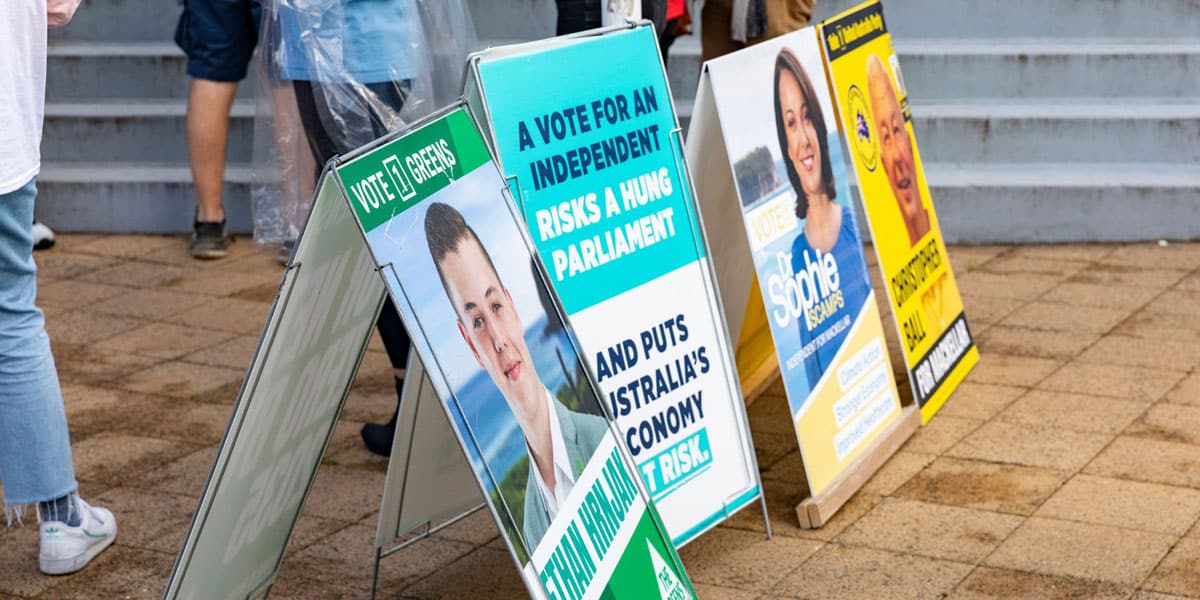
A good voter’s guide to bad faith tactics
Opinion + AnalysisPolitics + Human Rights
BY Dr Luke Zaphir 1 APR 2025
Political campaigns are mechanisms of persuasion – they aim to convince you to give them your vote.
However, they often use underhanded and bad faith tactics – not because they’re sneaky (though they can be) but because humans don’t naturally process and interpret information rationally.
This isn’t usually bad news for us – by thinking more quickly and reactively, we’re able to identify threats and safety immediately. But when it comes to elections, thinking logically is a different beast altogether. We have to slow down our thoughts, order information, make connections between ideas, discern truth from lies.
Political messaging relies on us using our simple thinking habits rather than the more rational process. Mean-spiritedness, name-calling, and catch-phrases are all tactics used to make us unconsciously lean towards or against voting for someone. Some strategies are deliberately designed to put us into specific emotional states – like anger or fear – to coax us into agreeing with the politician.
It’s more important now than ever that we recognise the tactics and strategies used so we can avoid being reactive and non-deliberative when voting. By slowing down our thinking – being more rational, and processing our emotions after we’ve examined a political message, we can come to the best possible decision come election time.
Here are some tactics that are often used, and tools that can help us combat them:
Branding and slogans
Slogans – especially catchy rhyming ones – make political messages easy and fast to understand. “Back on track” is being used by the Liberal Party in Australia this year, with “Building Australia’s Future” as the Labor party’s mantra. You might have heard an assortment of even simpler brands like “woke”, “groomer”, “degeneracy” or “traditional”.
These phrases are meant to be emotionally evocative and more importantly, be easily repeated. When scrolling social media, it’s far more likely that a person will absorb this idea unconsciously and feel a certain way. “Building Australia’s Future” evokes a sense of optimism in the audience. Similarly, “Australia Back on track” has an embedded sense of hope but also includes a slight sense of unease about the current system. Anxiety guides the thought – and it’s more likely that we won’t be thinking too deeply about which policies we agree with or what where we’d like the country to go.
At a minimum, branding and slogans don’t allow for nuanced conversations. Engagement goes up, but deep understanding goes down.
What you can do: Be mindful of your emotions
All political advertising is designed to make us feel a certain way. After reading or watching the content, check in with yourself. What are you feeling right now? Optimistic? Slightly anxious? Outraged? Recognise that the ad meant to evoke that and influence you.
Avoid taking the emotional bait. Try to avoid reacting and instead take a moment to consider why they’ve chosen that feeling for the ad. Positive emotions aim to build loyalty and trust, whereas negative emotions create a sense of urgency and amplify the downsides. Finally stay objective – consider what it is that’s factually true about this issue.
Priming
Priming is the practice of putting people in a certain frame of mind before discussing a political issue. For example, a common and volatile topic of debate is that of transgender people in sports. We often see public outcry at how unfair it is to have transgender women competing against cisgender women – transgender athletes are seen as having unfair biological advantages at best, or are ‘pretending’ to be women at worst – all just for a win.
This topic has been primed in a certain way – primed to lean on preexisting ideas of fairness and gender.
It’s reasonable to have strong feelings about what makes sports fair after all. But how would the conversation change if it started by talking about the bullying transgender people endure just for trying to play sports? What if the discussion started with the disproportionate mental health struggles they face compared to the wider population? This priming shifts the tenor of the entire conversation.
An argument that needs priming is one that is playing on our prejudices and biases – an obvious sign of a weak and unconvincing argument. Compelling ideas don’t need to rely on this kind of tactic to be persuasive.
What you can do: Reframe your thinking
After engaging with the material, take a moment to reflect. Are you being led to support a specific side? Are you valuing one piece of evidence more than another?
Avoid jumping to conclusions based on the presented viewpoint. Instead, ask yourself why the content is framing certain ideas favourably. Balanced content usually considers multiple perspectives while biased content steers you toward one.
Framing
Framing shapes how we see an issue, often making it seem overly simple or emotional. For example, the term ‘pro-life’ frames opponents as ‘anti-life,’ which is misleading. Abortion as a topic is filled with complex ideas around bodily autonomy, medical privacy, and beliefs around when life begins – framing this issue as simple removes all ability to explore it with any nuance.
Another way framing can be harmful is that it encourages feeling, rather than thinking. Fear of immigrants is a classic tactic used for hundreds if not thousands of years, and Australian politics is no different. Immigrants are depicted as a threat to jobs, culture and safety. The fear frame is meant to get people feeling like there’s an imminent danger when facts and common sense say otherwise.
What you can do: Deepen your thinking about the world and understanding of yourself
Consider whether you’re being encouraged to examine the complexities of an issue or merely agree with a simplified viewpoint. Recognise that interactions, such as liking or sharing or responding to a post, will amplify the original idea – even if you disagree with it.
Avoid simply nodding along. Instead, take the time to reflect on the broader implications, possible outcomes, and alternative perspectives. Be open to being wrong and ready to hear differing opinions.
Also consider whether you’re being pressured to conform to a single group, person, or ideology. “Us vs them” narratives rarely reflect our complexities as people or societies. Messages that simplify to that degree focus on our differences, rather than attending to our common problems.
No identity or belief system is infallible or beyond criticism – our own beliefs are our biggest blind spot. Embrace the diversity within yourself and others, acknowledging that multiple perspectives can coexist and contribute to a richer understanding of the world.
Image: Martin Berry / Alamy Stock Photo

Ethics in your inbox.
Get the latest inspiration, intelligence, events & more.
By signing up you agree to our privacy policy
You might be interested in…
Opinion + Analysis
Politics + Human Rights, Relationships
Do Australia’s adoption policies act in the best interests of children?
Big thinker
Politics + Human Rights
Big Thinker: John Locke
Opinion + Analysis
Politics + Human Rights
Orphanage ‘voluntourism’ makes school students complicit in abuse
Big thinker
Politics + Human Rights, Relationships
Big Thinker: Germaine Greer
BY Dr Luke Zaphir
Luke is a researcher for the University of Queensland's Critical Thinking Project. He completed a PhD in philosophy in 2017, writing about non-electoral alternatives to democracy. Democracy without elections is a difficult goal to achieve though, requiring a much greater level of education from citizens and more deliberate forms of engagement. Thus he's also a practicing high school teacher in Queensland, where he teaches critical thinking and philosophy.
An angry electorate

I recently attended a gathering of people who engage with a remarkably diverse range of Australians.
Members of this group are directly connected with both the wealthiest and poorest in society. Some are city folk; others firmly grounded in the lives of rural, regional and remote communities. They told of the experience and attitudes of people whose circumstances vary considerably – from the most secure to the most precarious in the land.
Remarkably, when asked about the ‘mood’ of the electorate, all told a similar story. Across all demographics, people are disappointed, frustrated and angry. Some of these feelings understandably arise out of the clear failure of our society to meet even the most basic needs of its members. For example, we were told of a regional city, in New South Wales, where 26% of the community are now experiencing food insecurity. That is, a quarter of the population experiencing days where they do not know if they will be able to secure the food they or their family need. We heard of young people – some from relatively affluent families – who doubt that they will ever be able to afford the ‘Australian Dream’ of a home of their own. For some, if not for all, the word ‘crisis’ is an entirely apt description of what far too many people are experiencing.
However, what this cannot explain is the anger felt by even the most affluent.
The seat of the fire is located in a shared (and growing) sense that too many of our politicians and media are ‘fiddling while Rome burns’. Instead of being wholeheartedly focused on the interests of the community, our leading politicians are perceived as being engaged in the trivial game of political-point-scoring, in pursuit of power for its own sake – rather than as a means for realising a larger vision of what could or should be.
This kind of anger is hard to extinguish. There comes a point when even a good policy is discounted by a public that cynically questions the politicians’ motives. This cynicism is exacerbated by a style of politics that is becoming increasingly partisan. One might reasonably doubt that there was ever a ‘golden age’ of politics in Australia. But the decline in widespread public participation in political parties has meant that a relatively small number of factionalised ideologues can take control of a major party. The way the numbers work, they can push increasingly extreme views – unhindered by the ‘sensible middle’ that used to prevail when major political parties really were ‘broad churches’.
I mention all of this because, as we know all too well in Australia, a single ember can easily give rise to a destructive conflagration.
My sense is that the Australian political landscape is bone dry, with the electoral tinder piling up. In this angry environment, one can foresee a moment of nihilistic abandonment; when the idea of ‘burning it all to the ground’ just might catch on.
This we have seen happen in other parts of the world. If only mainstream America had listened attentively to the complaints of people who genuinely felt abandoned by those occupying ‘the swamp’ in Washington DC. Ignored or labelled ‘deplorables’, President Trump became their ‘agent of destruction’. The same forces were at work in the Brexit referendum. A number of those who voted for leaving the EU doubted that their lives would improve. Instead, they took comfort in the fact that those who looked down on them would be worse off.
Our political elite must accept their fair share of responsibility for the increasing level of anger directed at the ‘system-as-a-whole’. However, as citizens of a democracy, we also have a critical role to play. While we might not be able to control our external environment, we are responsible for our response. Knowing what can happen when anger is let loose at its destructive worse, we need to exercise careful restraint and not enflame the situation.
Australian democracy has many faults. And there are plenty of people who have borne the burden of its failures. But it has also helped to sustain one of the world’s better societies. My hope is that politicians – irrespective of party or political persuasion – might take a moment to look beyond party or personal self-interest to ask if their conduct is strengthening or weakening our democracy in the eyes of the electorate. Democratic institutions are not the property of any government, party or faction. They belong to and are exclusively to be used for the benefit of the people. Those who tarnish or degrade those institutions are guilty of public vandalism. So, let’s hold those who do this individually responsible rather than abandon faith in our entire system of democratic governance. And if it happens to be the case that the problem is the system (as may be the case), then let’s work together to decide what would be better – and then build towards that positive outcome.
In turn, we need to dampen down the fires of anger – not be blinded by the smoke of our righteous indignation – no matter how justified it might be. We need a clear vision of what we think makes for a good society. And then we need to elect those who would help us to build rather than tear down.

BY Simon Longstaff
After studying law in Sydney and teaching in Tasmania, Simon pursued postgraduate studies in philosophy as a Member of Magdalene College, Cambridge. In 1991, Simon commenced his work as the first Executive Director of The Ethics Centre. In 2013, he was made an officer of the Order of Australia (AO) for “distinguished service to the community through the promotion of ethical standards in governance and business, to improving corporate responsibility, and to philosophy.”
Ethics in your inbox.
Get the latest inspiration, intelligence, events & more.
By signing up you agree to our privacy policy
You might be interested in…
Explainer
Politics + Human Rights
Ethics Explainer: Social Contract
Opinion + Analysis
Politics + Human Rights, Relationships, Society + Culture
In the face of such generosity, how can racism still exist?
Opinion + Analysis
Politics + Human Rights, Relationships, Science + Technology
Parent planning – we shouldn’t be allowed to choose our children’s sex
Big thinker
Politics + Human Rights






